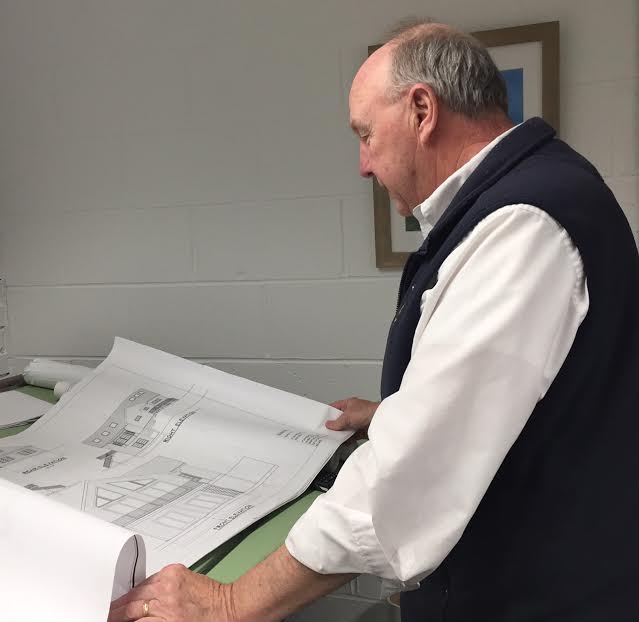SOUTHWICK – Snow is always a major part of the winter season in New England, and Town of Southwick Building Inspector, Art Lawler, has some tips for removing snow and ice from the roofs of homes.
In the public safety message sent out by Lawler on Monday afternoon, Lawler provided a list of do’s and don’ts when attempting to clean your roof:

Town of Southwick Building Inspector Art Lawler. (Photo by Greg Fitzpatrick)
- Use a snow rake for pitched roofs to remove snow from the roof.
- Start at the edge and work your way up the roof.
- Try to shave the snow down to 2 or 3 inches on the roof instead of scraping the roof clean, which could risk damage to your shingles or other roof covering.
- Keep in mind that any metal tool can conduct electricity if it touches a power line. Also, metal tools can do more damage to your roof.
- Most plastic shovels are better, except the ones with curved blades – those too will do some damage to your roof.
- Shovel snow from flat roofs, throwing the snow over the side away from the building.
- Carefully remove large icicles that are hanging over doorways and walkways.
- Wear protective headgear and goggles when performing any of these tasks.
- Always have someone with you incase anything goes wrong, never work alone.
- Consider hiring professionals to do the job. The combination of heights plus ice makes this one of the more dangerous house chores.
- Keep gutters and drains clean, free of ice and snow and keep downspouts clear at ground level.
- Unless approved by an engineer, don’t add your weight or the weight of equipment to the roof.
- Don’t use a ladder since ice tends to build up on both the rungs of the ladder and the soles of your boots.
- Don’t use electric devices such as hair dryers or heat guns, or any open flame devices to remove snow and ice.
- Check outside furnace and dryer exhaust vents, making sure that they are not obstructed by snow or ice to prevent carbon monoxide poisoning.
- Never use cooking equipment intended for outside use inside your home as a heat source or to cook with.
- Never use your oven for heat.
- And of course, if you ever feel that you are in immediate danger, call 911.
Lawler added that it’s very important for individuals to follow some of the tips he’s provided in his release. As Lawler said there shouldn’t be too much concern with newer homes, but flat, pitched roofs is what Lawler believes people should be aware of.
“You have to really be cautious of the snow that goes on those,” said Lawler.
Lawler also wants the community to make use of snow rakes.
“Snow rakes have the long enough handles where you can use it from the ground,” said Lawler.
On February 14 this year, the Massachusetts Department of Public Safety sent out a press release about roof collapse and snow removal safety information.






